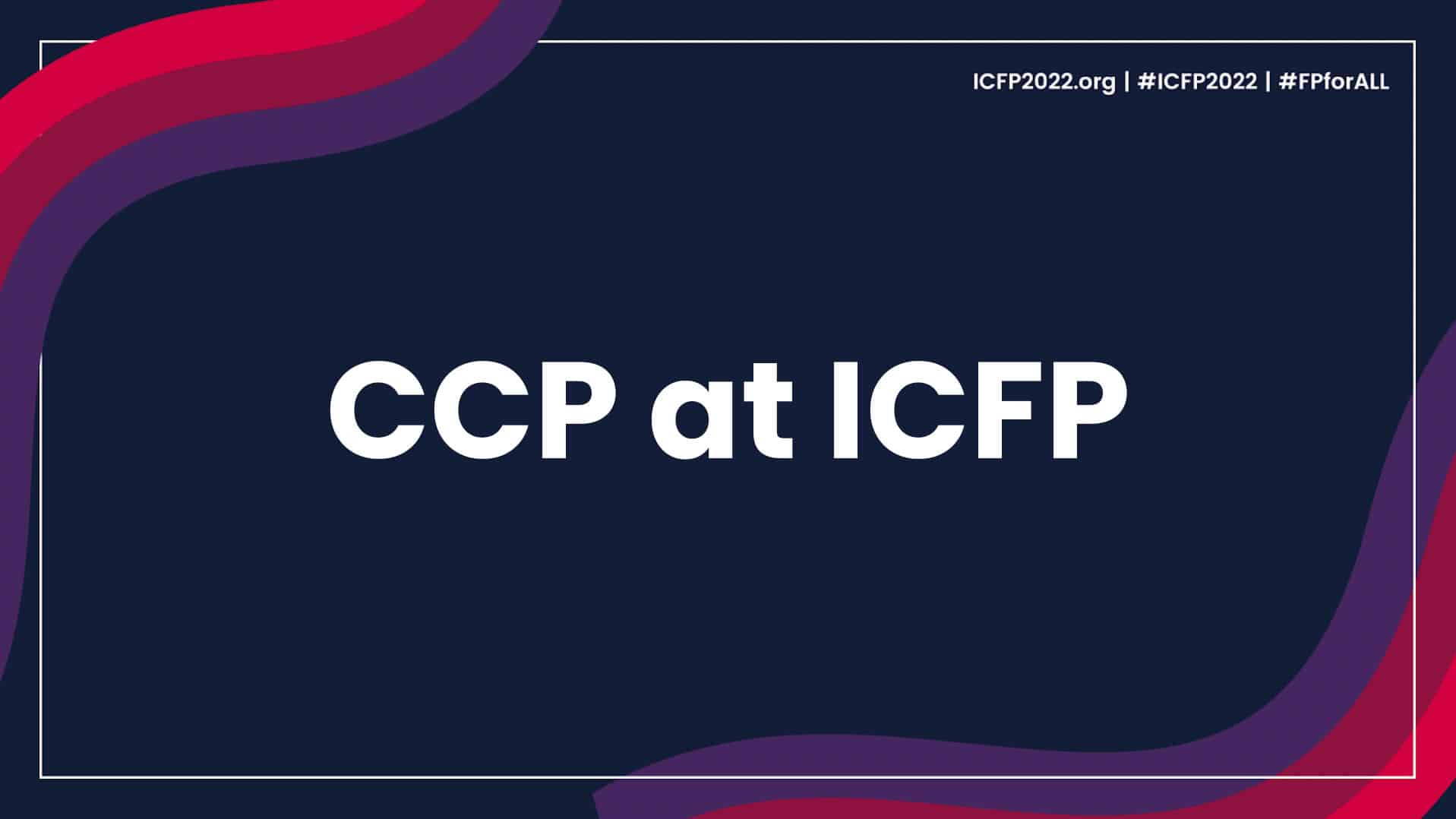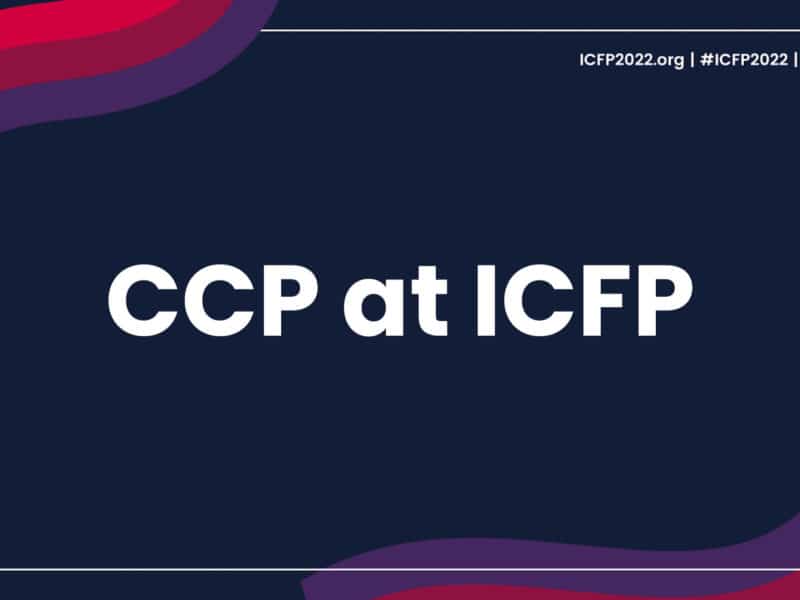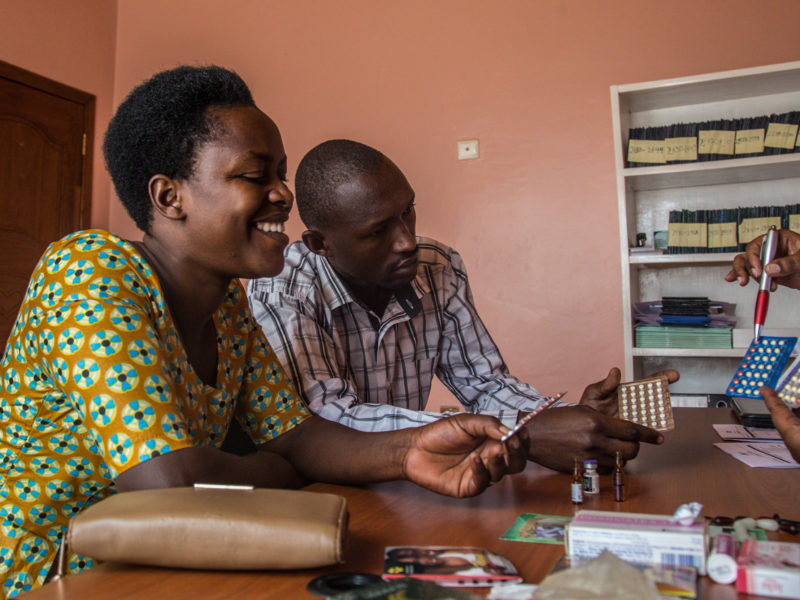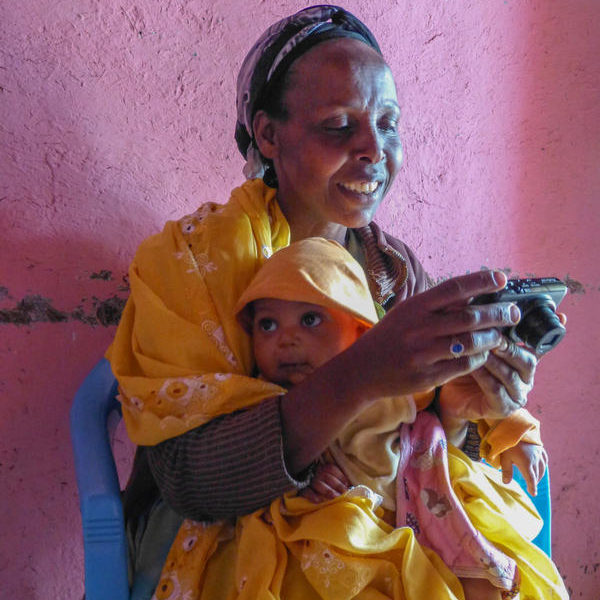The 2022 International Conference on Family Planning opens in just 20 days and the Johns Hopkins Center for Communication Programs and its projects will be featured across the enormous gathering from poster sessions to abstract presentations to side events. The CCP-led Knowledge SUCCESS project will host a Fail Fest and there will be an event highlighting CCP’s work through the Breakthrough ACTION project.
Much of the conference will be livestreamed from Pattaya City, Thailand, where the event is being held from Nov. 14-17. If you’ll be there in person, stop by our double booth (#33 and #34), the Breakthrough ACTION and RESEARCH booth (#130) and the Knowledge SUCCESS booth (#41).
CCP staff will be featured in dozens of ways over the course of the event. Here are some of the highlights. Do note that times are local Thailand time and that they are subject to change so check the ICFP program for updates:
Tuesday, Nov. 15:
Agreement versus Practice: Highlighting the Gap Between Gender Norms Change and Family Planning Use Among Men in Uganda, PEACH Pattaya 5, 11:50 a.m. (Authors Anna Passaniti, Judith Nalukwago, Bolanle Olapeju, Paul Odeke, Pallen Mugabe, Leonard Bufumbo, Musa Kimbowa, Isaac Musoke, Emma Kayongo, Doug Storey)
From the abstract: What is the relationship between gender equality norms among men and family planning use in Uganda? Male involvement and partner communication have been found to be associated with increased uptake of family planning services in many settings. Men’s perceptions of gender norms are also crucial in shifting social norms towards gender equality. The USAID-funded, CCP-led Social and Behavior Change Activity in Uganda explored individual-level perceptions of gender equality norms among men aged 18 to 49 years
Findings:
- Nearly three-quarters of sexually active men responded that either they or their partner were currently doing something to prevent or delay pregnancy.
- Eighty percent of men demonstrated agreement with gender equality norms in general.
- But only 66 percent agreed with gender equality norms at the household-level compared with the 80 percent who agreed with economic equality, 83 percent who agreed with religious equality, and 92 percent who agreed with equality in leadership and political participation between men and women.
Bottom Line: Proportionately fewer men agree with gender equality at the household decision-making level than they do with economic, political and religious gender equality. Therefore, gender transformative social and behavioral interventions should address both perceptions and actions at the household level by improving interpersonal communication and counseling among men and women to have the greatest impact on both gender equality and family planning use.
Wednesday, Nov. 16:
Oops! Ah-ha! Learning from “Failures” in FP Program Implementation, Beach Hotel Royal Opal Theater, 10:15 a.m.
Join the Knowledge SUCCESS project for this exciting “fail fest” moderated by Ellen Starbird, Director of USAID’s Office of Population and Reproductive Health. Representatives from USAID, WHO, Bill & Melinda Gates Foundation and PSI will share their stories of improving through failure.
Formative Research in the Process of Human-Centered Design (HCD) to Understand Family Planning Method Discontinuation in the Philippines, PEACH Pattaya 14, 11:50 a.m. (Authors: Billie Puyat Murga, Krissa Alvarez, Danielle Hong, Jervenne Teo, Laura Ferriere, Uttara Bharath Kumar)
From the abstract:
Countries will only reap the benefits of family planning if contraception is consistently and correctly used, and users are supported throughout this family planning journey. USAID’s ReachHealth Project, in which CCP is a partner, and the Breakthrough ACTION project conducted formative research as part of a human-centered design process in the Philippines to explore the decision-making processes and service experiences around contraceptive adherence and discontinuation and identify specific touchpoints and/or opportunities to intervene.
Findings:
- Users typically stop using contraceptives immediately if they feel that it is disrupting their daily life. Those who experience changes in their physical appearance are also likely to pause on using contraceptives.
- Women who have tried only one contraceptive tend to stick to it. However, if they have tried more than two, there is a tendency to explore a wider range of methods and find the best fit particularly for younger users.
- Women confirm their decision to discontinue with their contraceptive method with their male partners. Men will encourage it if they think that their wife’s health is at risk. In the end, women still make the final decision.
Bottom line: Investing in using social and behavior change approaches to address family planning discontinuation can be cost effective in that users continue to stay users and opportunities for unplanned pregnancies are reduced.
Know, Care, Do: A Theory of Change for Engaging Men and Boys in Family Planning, PEACH Pattaya 6, 4:15 p.m. (Authors: Danette Wilkins, Joanna Skinner and Dominick Shattuck)
From the abstract: Engaging men and boys in family planning and sexual and reproductive health can improve their own lives and those of their intimate partners, families and communities. Evidence shows that engaging men and boys in family planning and sexual and reproductive health programs can decrease unintended pregnancy, improve maternal health, reduce sexually transmitted infections such as HIV/AIDS and advance gender equality. Though progress has been made to engage men and boys more effectively in these programs, most programs continue to do so in incomplete ways.
Findings: The researchers present a theory of change for engaging men and boys in FP that broadly describes the key drivers of men’s and boys’ engagement, critical intervention features to address these drivers, anticipated changes from the interventions and how these changes shape and influence men’s and boys’ engagement in family planning to advance reproductive empowerment for all.
Bottom Line: This theory of change can guide program implementers as they consider how to address key drivers and bring about necessary changes to meaningfully involve men and boys in their FP programming and services.
Family Planning Demand and Service Delivery During COVID-19 in Burkina Faso & Togo: Results from a Qualitative Study, PEACH Pattaya 7, 4:15 p.m. (Authors: Dana Loll, Tim Werwie, Aboubacar Sawadogo, Hilaire Tokplo, Losseni Drabo, Danielle Naugle, Radha Rajan and Claudia Vondrasek)
From the abstract: The West Africa Breakthrough ACTION program aimed to understand how clients in Togo and Burkina Faso have experienced the COVID-19 pandemic and explore the potential effects of the pandemic on their fertility decisions and associated family planning demand and uptake. Specifically, the program included open-ended questions related to participants’ fertility and family planning decision-making, their experiences of COVID-19 and its effects on their lives, the perceived safety of the health facilities, and their willingness to access services at the health facility.
Findings: While few of the participants had direct experiences with the health effects of COVID-19, nearly all of them spoke to the financial struggles that they experienced based on government restrictions on movement and public gatherings. While some participants mentioned COVID-19 as a factor that deterred them from seeking health services (particularly at the height of the pandemic), many of them expressed trust in the COVID-19 prevention measures that were put in place at the health facility, including hand washing, physical distancing and wearing masks.
Bottom Line: Given the expressed need for family planning and the willingness to access health services at the health facility, service delivery organizations should focus on ensuring adequate COVID-19 protections, family planning commodities and high-quality services.
What’s SBC Got to Do with It? Five Ways Social and Behavior Change Can Transform Your Family Planning Program. Pattaya 5, 7 p.m.
Please register to attend: https://bit.ly/whats-sbc-got-to-do-with-it
To transform family planning programs, we must use every tool available to us. That includes social and behavior change, an essential component in achieving family planning goals. Social and behavior change has been shown to increase successful outcomes in family planning and demonstrates a high return on investment. Social and behavior change also complements service delivery investments before, during and after services.
Join Breakthrough ACTION and RESEARCH for an interactive program to learn how you can use social and behavior change to transform your family planning program. You will explore evidence, tools and learnings to help you answer these five questions:
- How can I improve family planning quality of care and provider behavior?
- How can I meet the unique family planning needs of youth?
- How do I know if social and behavior change is cost-effective and making an impact?
- How can I address gender and social barriers to family planning use and ensure equity in my program?
- How can I use social and behavior change to integrate family planning efficiently and effectively with other health issues?
Thursday, Nov. 17:
PANEL: Programmatic Adaptations Enabled Continued Access to FP During the COVID-19 Pandemic: What Did We Learn and How Can We Apply it to Future Crises? PEACH Pattaya 15, 11:50 a.m. (Panel presenters include Anne Ballard Sara and Ruwaida Salem of the CCP-led Knowledge SUCCESS project)
From the abstract: The COVID-19 pandemic led to many types of service and policy adaptations to family planning and reproductive health programs around the world. The objective of this panel is to share how various projects documented these adaptations and how we can apply what we learned to future crises.
Findings: Panelists will present examples of adaptations from multiple countries from providing health services or information virtually or via mobile phones, the implementation of multi-month contraceptive refills, self-care initiatives and adaptations to social and behavior change programs to ensure continued demand for family planning. They will also discuss how these learnings can be applied beyond the pandemic.
Bottom Line: Although COVID-19 has had devastating effects on the lives and health of people and communities, the pandemic also accelerated many positive programmatic actions which improved access to family planning for women, men and adolescents around the world.





